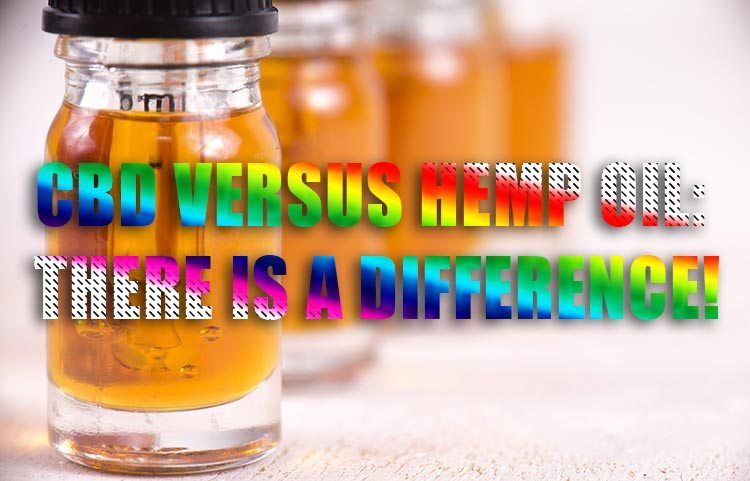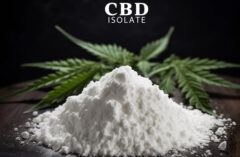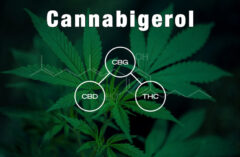Table of Contents
Last Updated on November 14, 2023 by Team Spinfuel
With all of the confusion surrounding the different cannabis-based oils being produced, you might think that there is no difference, or that differentiating is a nearly insurmountable task. Fortunately, neither are the case. In fact, there’s a very simple way to know the difference in what makes CBD oil, and what makes hemp oil. After you officially know which is which, you’ll also know which has the properties you’re looking for and choosing which best suites your needs will become exponentially easier.

What Makes an Oil CBD or Hemp?
CBD, or cannabidiol, is a naturally occurring compound found in the cannabis plant. The hemp plant falls into that category as part of the cannabis family. In fact, CBD oils and other supplements are typically manufactured from hemp-derived CBD; that is, the CBD is obtained from the hemp plant rather than other cannabis, which is what makes its status legal. So, if CBD oil can be made from the hemp plant, are CBD oil and hemp oil one in the same? While from the same plant, each oil is obtained from a different part of the plant, and each possess their own unique set of properties, applications, and benefits.
CBD oil is extracted solely from the flowers, leaves, and stalks of the plant. Hemp, however, is obtained only from seeds. Additionally, while most CBD is extracted from hemp plants, CBD is also found in other cannabis plants, and not hemp exclusively. To produce hemp oil, only the seeds from the hemp plant can be used.
Applications for Hemp Oil
The uses for hemp oil differ than CBD in that it has more practical uses, whereas CBD is used more medicinally. Of course, that doesn’t mean that hemp doesn’t have a potential positive affect on health; the manner in which it contributes to our health is more as a preventative measure, and as an element to a healthy diet. CBD, on the other hand, is seen as a possible treatment for ill health that already exists.
One popular use for hemp oil is, like many other vegetable oils, food preparation. It can be used for pan-cooking, as a butter substitute in baking, and just about any other manner of food prep in the kitchen that typically calls for the use of some form of fat. Hemp also has a very rich nutrition profile (more nutritional than CBD oils, though those are excellent as well, they just may not be as versatile when it comes to food and consumption). It’s high in essential fatty acids, like omega three and omega six, as well as tons of vitamins and minerals, making it a perfect healthy addition to any meal.
Perhaps better yet is the use of hemp oil in skin care. Hemp oil is a great option for topical use, as it is natural, so it is free from dyes and chemicals. Many known carcinogens are absorbed via contact with the skin, so anything done to lessen the impact is definitely beneficial. You’ll find that hemp oil may actually be able to replace many of the beauty and skin care products in your regimen. It is an effective moisturizer for both the body and face, as it is a natural humectant, which draws moisture directly into the skin. It has one of the lowest comedogenic scores out of all oils, which means it’s safe to use on the sensitive skin of the face and won’t clog pores. The natural moisturizing effect of hemp oil isn’t just helpful for healthy skin. It is also great for the scalp, helping to relieve itchiness and eventually eliminate dandruff. The hair also will benefit from the added moisture, resulting in stronger, healthier locks.
Even though beauty and skin care and food-related hemp are more common and well-known, hemp oil has been proven to have some other pretty unique uses as well. It is being used as a base for a variety of different plastics, for example. It has also been used effectively as an eco-friendly option for paint production, taking the place of other more harmful chemical products. Who would have guessed that hemp oil was so versatile?
Applications for CBD Oil
The applications for CBD oil, while some overlap with hemp (like some nutritional benefits), are primarily medicinal. Many people turn to CBD as an alternative treatment over conventional options because of its safety, availability, and affordability. Like hemp oil, CBD is natural (be sure you are obtaining it from a quality provider) and free of harmful chemicals, additives, and dyes. Being derived from the hemp plant, CBD oils are legal, and therefore available for use even without a prescription, and compared to expensive pharmaceuticals that become even more expensive if you don’t have prescription insurance, CBD oil is very affordable.
CBD is being used to treat different ailments, from the mental aspect to the physical. Some studies have shown that it can help relieve some of the most prevalent mental health struggles, like anxiety and insomnia. In regard to physical illnesses, CBD oil can reduce inflammation, which is good news for a lot of conditions, like arthritis and autoimmune diseases like lupus or inflammatory bowel disease. It also has many properties that are encouraging for the treatment of diabetes, high cholesterol, and neurodegenerative disorders.
Benefits to Both
As you can see, both hemp and CBD oil are beneficial in a variety of ways. Which oil is right for you obviously is highly dependent on what results you’re looking for or what you’re looking to accomplish or treat, but with so many good health effects, incorporating both oils may prove optimum. It’s easy to add hemp oil into your life in practical ways; make it into a tasty salad dressing, swap out your daily moisturizer, or use it as your new favorite makeup remover. CBD is also easy to incorporate as part of a healthy regimen alongside a good diet and exercise. No matter what your health goals are, cannabis oils can help you along on your journey to success. For more information check out uk.ma-time CBD oil products








